How to combat the mental game of an injury

Guest editor this month is Claire Badenhorst...one of our valued blueseventy NZ Ambassadors.
An injury, probably the words and the thing that any endurance athlete would pay to not to hear. I am pretty sure if given the choice most triathletes would choose to pay more to never hear those words uttered again in their presence, than they would for bike insurance. But occasionally, given the sport we choose to do, the hours of training stress and conditioning it requires from our bodies and the external stresses of life, work and nutrition (to name a few) can sometimes result in the un-wanted injury. Now I hate to admit it, but I have now had a fair few injuries, most have required me to cut out large weeks of running training, but I guess the beauty of triathlon is that at least you have two other sporting disciplines to fall back on. The first couple of weeks of an injury where you are trying to figure out what it is, what caused it and how long you can’t do something is probably the most frustrating time and I can honestly say that sometimes I don’t feel like I handle it well at all. Ask anyone who is close to me (family, partner, very close friends and housemates), this calm smooth persona that I am giving off now is a result of weeks of turmoil, mostly mental that I go through when I have a major injury.
So, I was intrigued by the idea of writing an article on how I ‘cope’ with an injury. I used to get really upset with how I felt, and how I handled the initial few weeks or days, but I have learnt over time that I am probably just one of many people who feels this way given the circumstance. I find I have to go through a bit of an emotional process with an injury but ultimately, I have that internal drive and motivation to keep going. Now I know that an injury is not a life/death event, but when you dedicate so much time during each day, week, month and even years and then you start to think about the effort required to train for each discipline, then that small ‘speed bump’ that is an injury can seem like a mountain.
As bad as the comparison sounds, I often find that when I get an injury I go through the 5 stages of loss/grief.
- Stage 1: Denial: There is without a doubt a definite denial stage to start. I often find myself thinking ‘oh it’s not so bad, I will wake up in the morning and the pain will be gone’, or ‘that pain I was feeling is all made up and in my head, probably just cramp post training, better get on the electrolytes’. Yes, I am completely aware of how ridiculous these justifications sound. I have even heard myself saying them out loud in the hope that if I verbalise and say them out loud to others then surely this must be right and true. Sadly this is not always the case, but hey at least there is a bit of optimism with the bit of denial.
- Stages 2 and 3: Anger and Depression: I find that these two stages often hit me in waves for about a week or two and I constantly feel like I am rebounding between the two emotions. Often these two feelings come to fruition when you get your final diagnosis and prognosis for rehab and what you can or cannot do. Now I am of the opinion that you do need to vent, and experience these two emotions. Some might say that you need to get through these two stages quickly and move on, focusing on what you can do and not what you can’t do. I heard an interesting perspective from a massage therapist, his thoughts were that sometimes when you are feeling angry and depressed you do not want to do the activity that caused the injury and you actually end up getting the rest that your body needs to recover. When people move straight into rehab, the activity they may be doing can act as a form of compensation for the injury, and lack of activity, they may overdue what the body part can handle especially in the initial stages of an injury. In some cases, rest is best and feeling depressed and wallowing in the fact you can’t exercise may be good for you in a weird twisted way. Now once or twice during an injury and in this ‘fragile state’ of stage 2 and 3 I have had people ask me, ‘why do you get so angry and upset over something you enjoy doing? If it was really making you happy you shouldn’t be this upset’. Seriously this is the worst thing you can ever say to an athlete!! Trust me if you ever want to speak to your loved one or friend again after their injury, do not say this to them during it, you have been warned. Personally, I find that it is during this time that I realise why the sport I do is so important to me and the aspects of the sport that I love most.
- Stage 4: Bargaining. For me this stage of injury acceptance is interspersed throughout the process. When you first feel that niggle and you suspect that something could be wrong, you will undoubtedly do anything to make the pain or worry go away. I find when I am upset or angry about the injury I will often get caught saying, ‘if only I had done something different’, or ‘did I do the sessions correctly or at the right intensity? Was I running too hard for my easy pace, did I fuel correctly?’. ‘If only I had listened to my body and gone to see someone sooner’. All of these ‘what if’s’ and wishful thinking can be good and bad. In many ways, they are probably not the best thing to think about as essentially you are just trying to find fault with yourself and these can then be used to fuel the anger or sadness. In order to prevent this, it is good to have a support team around you, whether that be family, friends, a coach, or anyone who will be able to listen to your concerns and point out things that were or were not in your control. These people are your sounding board to stop you from ‘self-faulting’ and instead can offer advice on things that can be controlled and potentially how you could improve on them next time.
- Stage 5: Acceptance. After what feels like an emotional upheaval for about 2 weeks I eventually reach the stage where I accept what has happened and start behaving like my normal self. It takes me a while but eventually I get to a point where I am a bit over being upset and I start craving ways in which I can improve and ‘future-proof’ myself. However, I think the keys points to note are that, firstly I feel I have to go through the doom and gloom in order to appreciate and maybe highlight areas that I can improve on as well as clarify why I spend so much time doing this sport. Secondly, you need to have a solid support crew around you. These people can range from family, friends to a coach or physio, they are your people that you can be open and honest too. They are the people who will let you get upset and angry for silly reasons, such as the peanut butter not being on sale or getting stuck in traffic. Instead of getting upset at you, they allow you to vent and cry and then give you a hug and tell you it is all going to be ok. These people will often be the ones that will highlight your strengths and be honest with you about your weaknesses and will be able to have discussions with you about the areas you can improve on, and options that you can take to get there. They are the people you need to have in your corner to help you move from the emotional injured athlete to an athlete with a plan of attack who has achievable goals. For me as an athlete and a person, my goal is to recover from the injury so that I can get the most enjoyment out of the sport that I do and try put into place practices that will prevent it occurring again (key word being try). I don’t go out setting goals of winning or losing as I feel that a race has too many variables and the stress of this goal is more negative than positive. I find that if I set a goal of self-improvement and enjoyment, then this will flow down into my training and work life.
Once I have my plan and I can see what I need to do then I am all set to go, the motivation returns and work ethic kicks in. I find it easy to work to a plan. Even though it may take a bit of time to formulate the plan, once we (yes, we - I work with my coach, physio’s, doctors, family, partner, friends etc) have one in place I feel like I can jump back into it. Yes, injuries are hard and often the physical side is not the part that causes the issues, it is the mental game. Sure, you could throw in the towel and think that this sport isn’t for you; or you could choose to see the potential you have and realise that you have only just scraped the surface of the enjoyment and challenges you get to do from doing an endurance sport. I am too curious to throw in the towel, I would rather keep trying to find out what my body is capable of than give up. I would rather not sit around wondering what my boundaries are, I would rather I keep trying to figure out how I can push them and use them as a means to improve myself. I find that looking at it from this perspective means that the first option of ‘not trying or giving up’ isn’t even an option I would entertain. My internal motivation keeps me trying even after all the injuries, and it keeps me coming back to the endurance sport arena time and time again.


